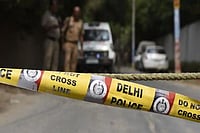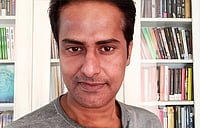On one side, the Supreme Court was hearing petitions seeking the legalisation of same-sex marriages, and on the other, reports about sodomy and sexual assault surfaced following the arrest of an Indian Army jawan who was accused of killing four soldiers at the Bathinda military station in Punjab.
The Punjab Police eventually arrested the man identified as Gunner Desai Mohan. It was only after the arrest that reports surfaced that said Mohan shot his fellow soldiers after they allegedly harassed him and sodomised him.
Earlier in 2019, Indian Army Chief General Bipin Rawat created a controversy when he said homosexuality will continue to be considered an offence in the armed forces. This came as a slap in the judgment by the top court that decriminalised homosexuality in India.
A study conducted by the thinktank Hague Centre for Strategic Studies on more than 100 armed forces found India was among the least friendly to gays.
Here are other countries that have openly allowed members of the LGBTQIA+ community to serve in their armed forces:
Australia
While the Australian defence force (ADF) had banned lesbian, gay and bisexual personnel from serving openly in their armed forces until November 1992, it was only in September 2010 that restrictions on service of transgenders was lifted. In 2010, the ADF policy was amended to allow transgender Australians to openly serve without the risk of being discharged. Australia's military has also published a diversity handbook on how to improve inclusion for personnel who are transitioning between genders while serving.
Netherlands
Until 1974, homosexuality was justified as a reason for exclusion from the Dutch military, according to reports. The Royal Netherlands Army later embraced a "Do Tell" policy as opposed to the 'Don't ask don't tell policy" (official United States policy on military service of non-heterosexual people) and routinely organises pride events and remains among the most inclusive militaries for transgender soldiers, according to The Hague Centre for Strategic Studies. The HCSS had released the first ever global ranking of countries regarding inclusion of lesbian, gay, bisexual and transgender (LGBT) service members in the armed forces, and Netherlands was in the second place.
Argentina
Since 2009, the Argentine Armed Forces have officially lifted the ban on homosexuals through the implementation of a new military justice system. This system no longer considers homosexuality a criminal offense among uniformed members and has transferred exclusive military crimes to the public justice system, replacing the previous separate military court system.
New Zealand
New Zealand's military was ranked the most inclusive in the world according to the 2014 report from The Hague Centre for Strategic Studies. The New Zealand's Human Rights Act in 1993 ended most forms of employment discrimination against lesbians, gay men and bisexuals. The country also created OverWatch, the Defence Force's in-house support network for LGBTQI personnel, such as Sgt. Lucy Jordan of the Royal New Zealand Air Force who heads the group as well as to their commanders, colleagues, families and friends.
Germany
Germany only legalized same-sex marriage at the end of June, but it has allowed LGBT people to serve in its military for years. In 1990, it first allowed gay people to serve in the German armed forces, known as the Bundeswehr, and removed a ban on LGBT service members becoming officers in 2000.
Germany’s defense minister in 2020 apologized for decades of discrimination against gay servicepeople in the military until a change of policy in 2000.
A study commissioned by the defense ministry and being presented Thursday documented “systematic discrimination” in the Bundeswehr — the military of West Germany and since 1990 of reunited Germany — from 1955 until the beginning of the new millennium.
In 2017, parliament voted to annul the convictions of thousands of gay men under a law criminalizing male homosexuality that was enforced enthusiastically in post-World War II West Germany.
The legislation was introduced in the 19th century, toughened under Nazi rule and retained in that form by democratic West Germany, which convicted some 50,000 men between 1949 and 1969. Homosexuality was decriminalized in 1969 but the legislation wasn’t taken off the books entirely until 1994.
UK
Until 2000, by law, gay men and lesbian women were banned from serving in the British military. The military also started allowing former service personnel who were stripped of medals because of their sexual orientation to apply to have them restored.
An LGBTQIA rights pressure group -- Stonewall -- spearheaded the movement to prohibit removal of openly LGBT service members. In 2016 the UK Government amended the Armed Forces Bill 2015-2016 to make provision to repeal words in two sections of the Criminal Justice and Public Order Act 1994 that included a provision of a "homosexual act" to constitute as ground for discharging a member of the armed forces from the service.
US
The US repealed its ban on openly gay and lesbian service personnel in 2011. "As of today, patriotic Americans in uniform will no longer have to lie about who they are in order to serve the country they love," Obama said in a statement. "As of today, our armed forces will no longer lose the extraordinary skills and combat experience of so many gay and lesbian service members," he said, ushering a new era for the country's armed forces.
(With inputs from AP)


























